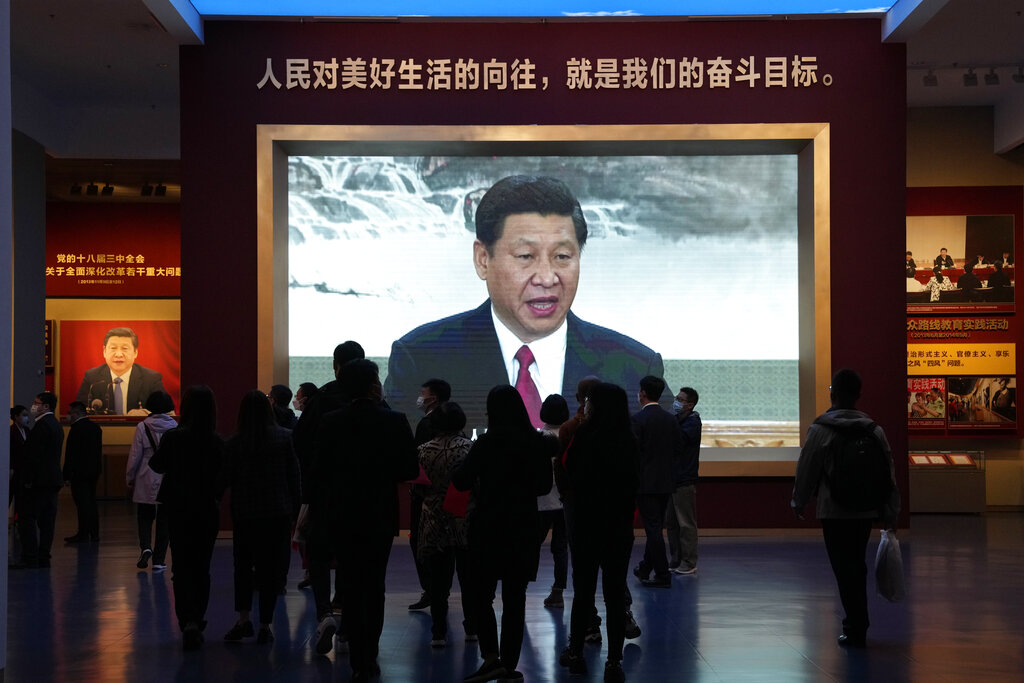
The stocks in Asia are cheap right now. The average Asia stock in our coverage universe trades at a 28% discount to our fair value estimates. Michael Wu, senior equity analyst at Morningstar, thinks the current price level suggests that any possible downside is priced in.
“Going ahead, any indication of a pivot away from the zero-COVID-19 policy by China could serve as a positive catalyst for markets. However, we expect any actual relaxation to be gradual, and potential lockdowns, albeit shorter in duration and smaller in scale, will remain a headline risk,” Wu adds.
Only 4 of 304 Stocks are Expensive
After sustained quarters of market downturns, overvalued stocks are now rare. Across Hong Kong, Japan, mainland China, Singapore, South Korea, and Taiwan, only 4 out of 304 covered stocks sit in the one-star territory.
No-moat property developer Sunac China, which also receives a fair value uncertainty of Extreme, is now deep in the overvalued territory. While trading of Sunac remains suspended, its last close was more than seven times its latest fair value estimate of HK$ 0.55. While the tourism sector of Japan and Singapore is staging a thriving reopening story, Chinese authorities have extended the border control policies and are not likely to relax by March 2023. Still, China Eastern Airlines (600115) and Air China (601111) are trading around double their respective fair value estimate. Beer manufacturer Tsingtao Brewery (600600) is also trading a premium.
While volatility is expected to persist in the near term, for investors with a three-year horizon, our analysts believe high-quality names are presently offered at attractive prices. Wu says: “Reducing interest rate hiking worries by the end of the first quarter of 2023 should allow the appetite for equities to return.”
Investors Should Focus on Quality
Buying a stock for cheap is great, but market discounts shouldn’t make us lose sight of another very important aspect when doing stock picking: quality. The names we are discussing today are categorized into three baskets: cyclical, economically sensitive, and defensive stocks.
Bucket 1: Cyclical Sector Stocks
While China companies in the cyclical sector were hampered by strict COVID-19 policies so far this year, we expect e-commerce volume to pick up as the government focuses on minimizing logistics and production disruptions, benefiting names like Alibaba.
Alibaba Group Stock (09988)
Weak macroeconomics and COVID-19 disruptions put an adverse impact on Alibaba’s share price. Also, the e-commerce giant is expected to see margin reduction in competing with Pinduoduo (PDD) and short video platforms’ e-commerce businesses. We assume a market share decline for Alibaba to below 50% by 2031. These concerns are already priced into the undemanding valuation, in our view. Improvement in macroeconomic conditions due to the government's stimulus should help its performance in the second half of this year and more so in 2023. Upsizing the share repurchase would also help the share price. More positive headline news on the completion or easing of regulatory actions has also boosted Alibaba’s share price.
Hong Kong Exchanges and Clearing Stock (00388)
While Hong Kong Exchanges and Clearing, or HKEx’s, share price is likely to feel the pressure from the weaker capital market conditions, there is no change in our long-term thesis. We continue to expect the wide-moat exchange to benefit from the liberalization of mainland capital markets in the long term. Initiatives in the first half of 2022 include the addition of exchange-traded funds to the Stock Connect program, which is supportive of trading volume in the long term. The scope of the Stock Connect can further be expanded with the inclusion of a wider range of securities, including smaller capitalization companies, and those with dual-class structures. On derivatives, the exchange continues to develop risk management products in index futures, fixed income and currencies, and commodities.
Yum China Stock (09987)
Yum China is set to benefit from China’s demographic shifts. Analysts believe there is significant room for fast food penetration to go up, driven mainly by long-term secular trends such as: 1) longer working hours for urban consumers; 2) rapidly rising disposable income; and 3) ever-smaller family sizes. The recent successful revitalization of Pizza Hut should continue to boost the group’s overall profitability while easing investor concerns over the long-term outlook for the brand in China.
Bucket 2: Economically Sensitive Sector Stocks
We see resilient demand for industrial robotics in the long term as labor shortages and wage pressure are likely to persist during post-COVID-19 recovery. For semiconductors, analysts’ view on higher structural demand in the long term is unchanged.
Harmonic Drive Systems Stock (6324)
Harmonic Drive Systems manufactures and sells strain wave reduction gears, which serve as key components for industrial robots and other high-end capital equipment that require precision. The company’s share price has fallen year to date as a result of excessively high growth expectations being lowered in management’s latest medium-term plan. However, the plan is conservative and with its wide moat remaining intact, the company is well-positioned to continue capitalizing on industrial robot and semiconductor equipment growth, as well as on newer applications like surgical robots.
Taiwan Semiconductor Manufacturing Co Stock (2330)
TSMC’s share price remained weak in the third quarter amid emerging fears of data center slowdown, broad-based order cuts, and rollback of price hikes scheduled for 2023 on top of sluggish smartphone sales. Analysts reckon that TSMC’s share price today has priced in a decline in earnings of a magnitude worse than that posted during the Global Financial Crisis in 2008-09. We think a similar EPS decline is less probable than in 2008 because TSMC owns about 80% of global foundry capacity in cutting-edge processes with Samsung as the only viable alternative. Looking forward, TSMC will be a prime beneficiary of secular growth in augmented and virtual reality, vehicle electrification, data centers, and other high-performance computing applications.
Tencent Holdings Stock (00700)
The gapping down in Tencent’s stock shows that the market is still focused on near-term headwinds, and while there are legitimate questions about earnings declines for the next one to two quarters, our analysts believe a turnaround is in clear sight. Game revenue would still see some volatility over the next term, but the segment now has much better long-term visibility following Chinese authorities’ resumption of game license approvals. The firm’s advertising business is still facing disruptions from lockdowns, but it’s also on track to benefit from more ad inventory as Tencent begins to monetize its video accounts. Analysts remain confident in Tencent's longer-term free cash flow potential and view current share prices as an opportunistic entry point.
Bucket 3: Defensive Sector Stocks
All defensive sectors outperformed the broader Asia markets as investors sought refuge amid higher market volatility in the third quarter. Chinese dairy brand, though, rides on the premiumization of consumers domestically. Higher demand for alcohol and cosmetics from Japan’s reopening of borders to international visitors will benefit quality Japanese consumer names.
Inner Mongolia Yili Industrial (600887)
Despite challenges in the broader consumer sector in the first half of 2022, liquid milk sales maintained their resilient double-digit growth. A slowing economy and reduced social activities have a drag on premiumization manifested by soft high-end UHT milk demand. But the longer-term growth outlook of premium liquid milk in China is positive as consumer sentiment improves. The company's expansive distribution network and operational efficiency remain its key competitive advantages versus peers and could help broaden its product category presence in the long term. As a market leader, the company should stand to benefit from an increasing penetration and premiumization of the dairy sector in China over the medium to long term.
Kao Corp (4452)
Kao Corp manufactures household and personal care products in Japan and owns brands such as Attack and Biore. A recovery in cosmetics and skincare sales, along with the benefits of price hikes, is set to offset partial cost pressure. While Kao’s ambition in business transformation is likely to take at least a couple of years to bear fruit, its economic moats, underpinned by its intangible assets and cost advantage, will allow it to deliver results. History has shown that Kao is able to bounce back from setbacks.
Chelsey Tam (Alibaba Group), Ivan Su (Tencent Holdings), Michael Wu (Hong Kong Exchanges and Clearing), Jason Kondo (Harmonic Drive Systems), Jacky Tsang (Inner Mongolia Yili Industrial Group), and Jeanie Chen (Kao Corp) provide the research of stocks mentioned in this article.













.png)






.jpg)





